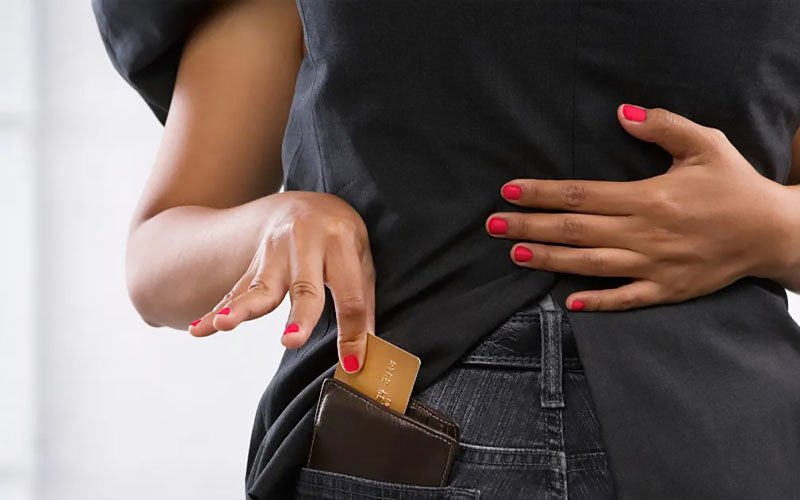Sugar Baby Scams: How To Spot A Fake Sugar Baby

Sugar relationships are now on the rise—more and more successful men consider the idea of becoming sugar daddies, and more and more attractive women sign up for sugar sites like Secret Benefits and SugarDaddy.com to start their sugar baby careers. Demand increases supply, but that’s not the only consequence of the growing popularity of sugar dating. It also leads to a growing number of fraud cases. How to avoid scams? That’s what we’re going to talk about.
Here is the list of trusted websites to find real sugar babies and daddies:
Online dating scam statistics: How many Americans have been victims of scammers
According to the statistics provided by the Federal Trade Comission, in 2020, Americans lost more money on dating scams than on any other type of scam. In 2020, losses reached 304 million dollars, which is 50% more than in the previous year. People who have become victims of scammers lost 2,500 dollars each (on average). Generally speaking, the statistical data shows that the number of victims is growing year by year.

Such a rise is in part explained by the pandemic. The inability to meet in real life resulted in a growing number of frauds. The Commission notes that scammers create appealing profiles, steal other people’s photos they find on social media websites or even steal the identities of real people. On top of that, it emphasizes that fraudsters make up numerous reasons not to meet in person, and well, that’s exactly how the sugar baby scam works.
Types of sugar baby scam: fake sugar girls on sugar dating sites & social media platforms
In fact, the chance that a sugar baby will meet a fake sugar daddy is higher than the chance that a real sugar daddy will meet a fake sugar baby. But don’t let that trick you—it doesn’t mean that sugar daddies can feel absolutely safe. An experienced scammer knows exactly that real SDs have money, and that’s the only thing that they need. So, let’s take a look at 3 most common types of sugar baby scammers you can meet when looking for ideal sugar relationships on one of the websites.
- Fake identities. These are fraudsters who create fake profiles, steal photos, make their account look appealing but all they want is to make you send money to their PayPal/e-wallets, or worse, get your bank account details.
- Real “sugar babies” who were never going to meet you in person. These are the real women who don’t want to steal money, at least not directly. These girls interact with sugar daddies, try to gain their trust, flirt with them, but aren’t going to give you any sugar. They want you to transfer money pretending that they need to pay the bills/help a sick mother/whatever, and that’s all, and though it seems that you’ll meet her one day, it will never happen. There’ll be other excuses.
- A blackmailing scammer. These are fraudsters who pretend to be real sugar babies, create an attractive account, use pictures and videos of hot women to start teasing them, talking about sex, etc. Their main goal is to make you send explicit pictures, and after they meet it, the worst part starts.
Do fake sugar babies exist only on sugar websites? Not really. Some of them have attractive profiles on the most popular social media sites, too.
Sugar baby scam—Instagram as the another platform for sugar scammers
In most cases, Instagram is used by sugar babies as the platform on which they can post tons of seducing photos, wait until men contact them, ask for money, promise to meet them—and again, that never happens. So, think twice before you try to contact a hottie on Instagram and send her money: there is a chance that you won’t get anything in exchange. There will be no real sugar relationship.

The interesting fact is that hotties get scammed, too. A fake sugar daddy can contact a girl on Instagram and tell her that he wants to send a few thousand dollars of allowance. Why not? A woman agrees, he asks to use a cash app, sends her an official email that looks like a real email from a cash app notifying her that a few thousand dollars were sent to her account, but she’s asked to pay a 50-dollar clearance fee. Again, why not? It’s just 50 dollars compared to the payment. A sugar baby “gets paid”, gives the fee away, and that’s where the story ends. Sugar daddies don’t get scammed in such a way, but such kinds of scam exist—remember this script and don’t let other sellers, services, “companies” scam you.
How do you identify a fake sugar baby? Tips to protect yourself
There are always red flags that can help a sugar momma or a sugar daddy spot a fake sugar baby. Here are some most common of them:
- A sugar baby asks for a weekly allowance before you even meet in person. Real SBs usually take payment for a date at the beginning of a relationship to protect themselves from fake sugar daddies, Salt daddies, and sometimes Splenda daddies. But they don’t usually ask to pay an allowance in advance before a real date actually takes place.
- The first meeting is delayed, day by day, week by week. Some “virtual sugar babies” don’t give anything but empty promises to meet you one day. Yes, they can be real, but there’ll be no first date.
- Photos are fake and she has tons of excuses not to have a video chat with you, not to mention real dates.
- She acts like gaining your trust is your only goal (and it is, payment from you is the only thing she wants).
- She is ready to promise you anything just to get your money.
- Information in her profile is in very poor English, and her messages look and sound a bit weird.
- She asks for money without doing anything, without even being your sugar baby in terms of mutually benefitial relationships between two partners. For example, after she gains your trust, she can tell you stories about numerous emeregencies, stolen credit card, canceled flights to your state, etc. Don’t believe her.

The scheme is simple: gain the trust of a sugar daddy—make him believe that they’ve met an ideal sugar baby he’ll meet in a few days or probably next week—use him to make him send money—block him or continue to give those empty promises.
How not to get scammed?
Anyone can be a victim of dating fraudsters, but there are a few rules of safe dating. If you follow them, you’ll hardly fall for a scammer online and lose your funds.
- Use a safe, reputable, legitimate platformт like Secret Benefits or SugarDaddy.com on the web is not always easy—there are a lot of sites and apps that connect SBs and SDs. Check a dating app or a site carefully before choosing it. Most dating apps and legitimate platforms that care about reputation a lot, have good moderation, and get rid of fake profiles created by “rich men” and “hot babies” using fake photos or stealing someone’s identity.
- Don’t provide personal information to anyone you’ve met on a sugar dating website (even if it seems safe and legitimate).
- Never, under any circumstances, don’t disclose your bank information to anyone—that’s how you can keep your bank account safe.
- Never send money to anyone you’ve never met in real life. Yes, real sugar babies may ask you for financial help, gifts, paying their bills, student loans, rent, etc., or help them when they get in trouble, but they usually do it when you’re already close enough and are actually dating.
- Don’t share too much detail on your personal life, don’t send explicit photos or videos to a stranger.
Generally speaking, if you see a red flag, don’t ignore it. If it sounds too good to be true, it’s a trap. Finally, if you’re going to send payments to someone you’ve never met, ask yourself if you really are going to spend money on a person who just wrote you text messages? Isn’t it suspicious?
Do sugar daddy scams work in similar way?
Yes, they do. On top of that, there are more fake sugar daddies, but in fact, sugar daddy scammers use the same techniques. A fake sugar daddy also does everything to gain trust, make a sugar baby transfer money (yes, there were the cases when a sugar daddy scammer asked an SB to pay extra clearance fees), use a weird cash app, etc. Of course, there’ll be no real dates and real compensation. That’s why many SBs prefer to get paid for the first dates in cash. It has an important advantage—you can’t get scammed so easily. That’s how they protect themselves from those who just want to get some sugar for free, or worse, get a SB’s money.

What to do if you’ve already been scammed? Tips for sugar daddies
But what if a sugar daddy has already become a victim of a scammer and lost his funds? In this case, he should:
- If you used your credit card to send a payment, contact your credit card company and notify them that was a fradulent charge and ask to cancel transaction.
- If you used your gift card, do the same—contact the company that issued a gift card and notify them that you were scammed and find out if the company can make a refund.
- Notify the team of the site you were using. Good platforms always block suspicious accounts, not to mention the accounts of sugar babies who scammed a sugar daddy or vice versa.
- File the police report.
As John Breyault, vice-president of fraud at National Consumers League, notes, people are just embarrassed when realize they’ve become victims of sugar scams and don’t file a complaint. If you accidentally become a victim, just remind yourself of the statistics—a lot of people suffer from scammers, this can happen to anyone. So, filing a police report is not something embarrassing. Bad things happen, but you can do the right thing to protect others and punish a scammer.
Summing up
Generally speaking, it’s safer for a sugar daddy to use sugar sites than for a sugar baby who can meet a Salt daddy, fake sugar daddy, etc. Still, it doesn’t mean that fake SBs don’t exist and that they won’t try to get access to your bank account/transfer your funds/get your personal information.
How to spot a sugar baby who’s trying to scam you? If you don’t want to become a victim, follow the tips provided in this guide. Already became a victim of a seeking arrangement scam? Try to get your money back, and no matter if it’s still possible or not, notify the team of a dating platform and file a police report.
Always remember that a scammer asks for money for nothing in exchange—professional SBs ask for money only if it’s really a mutually beneficial relationship.




